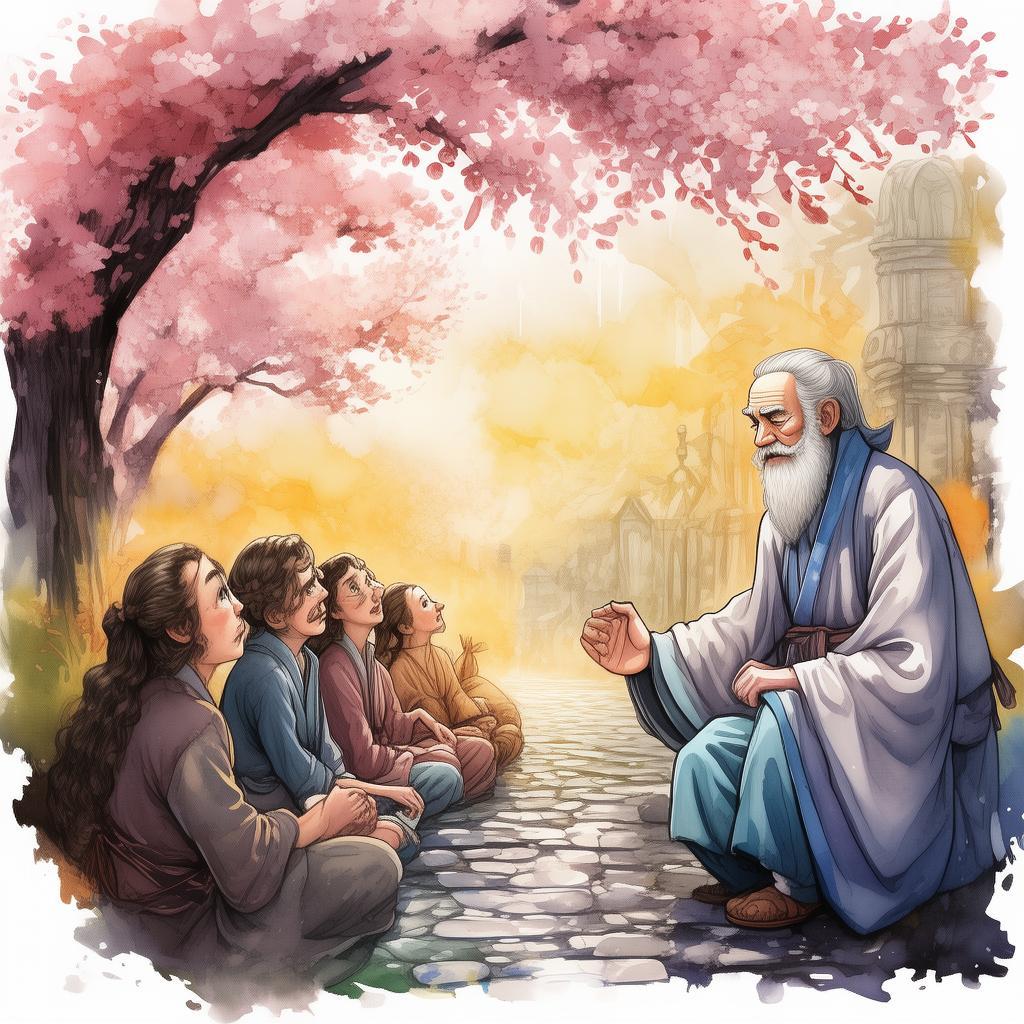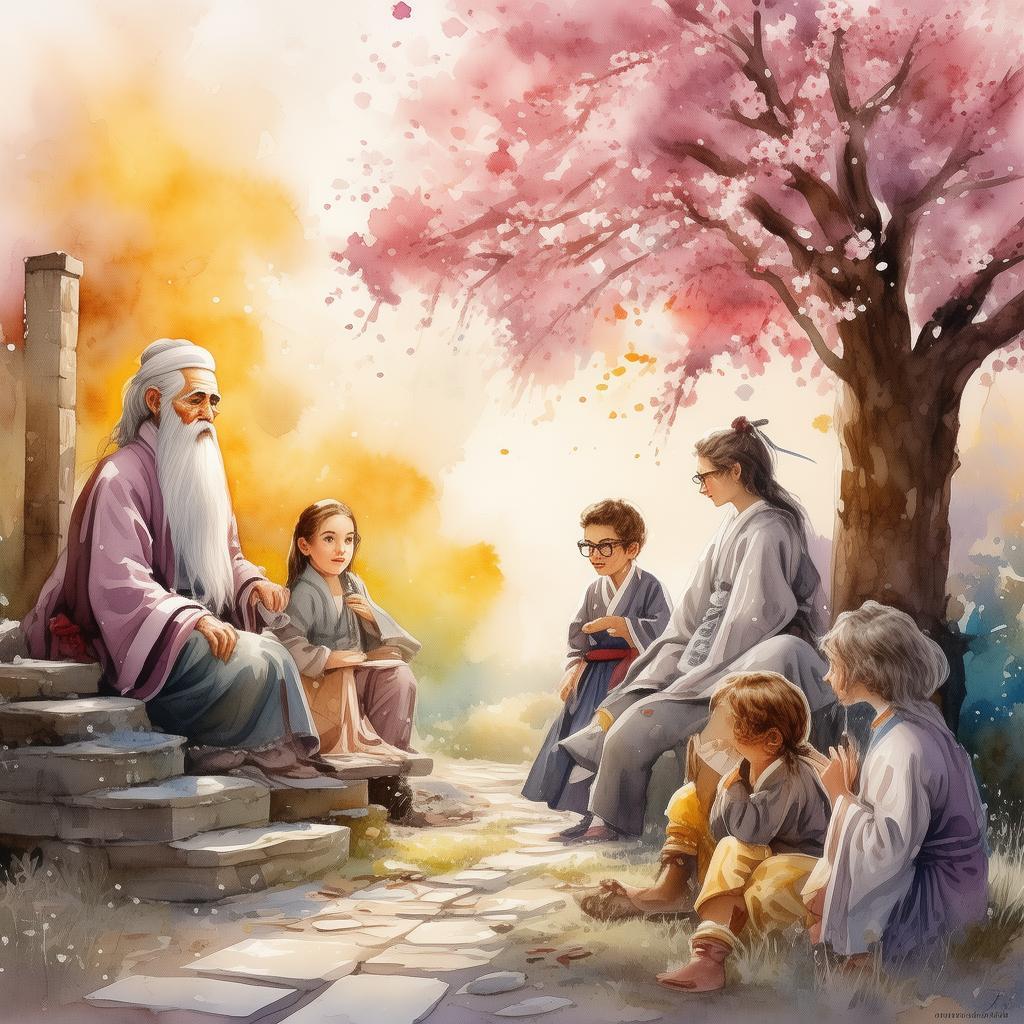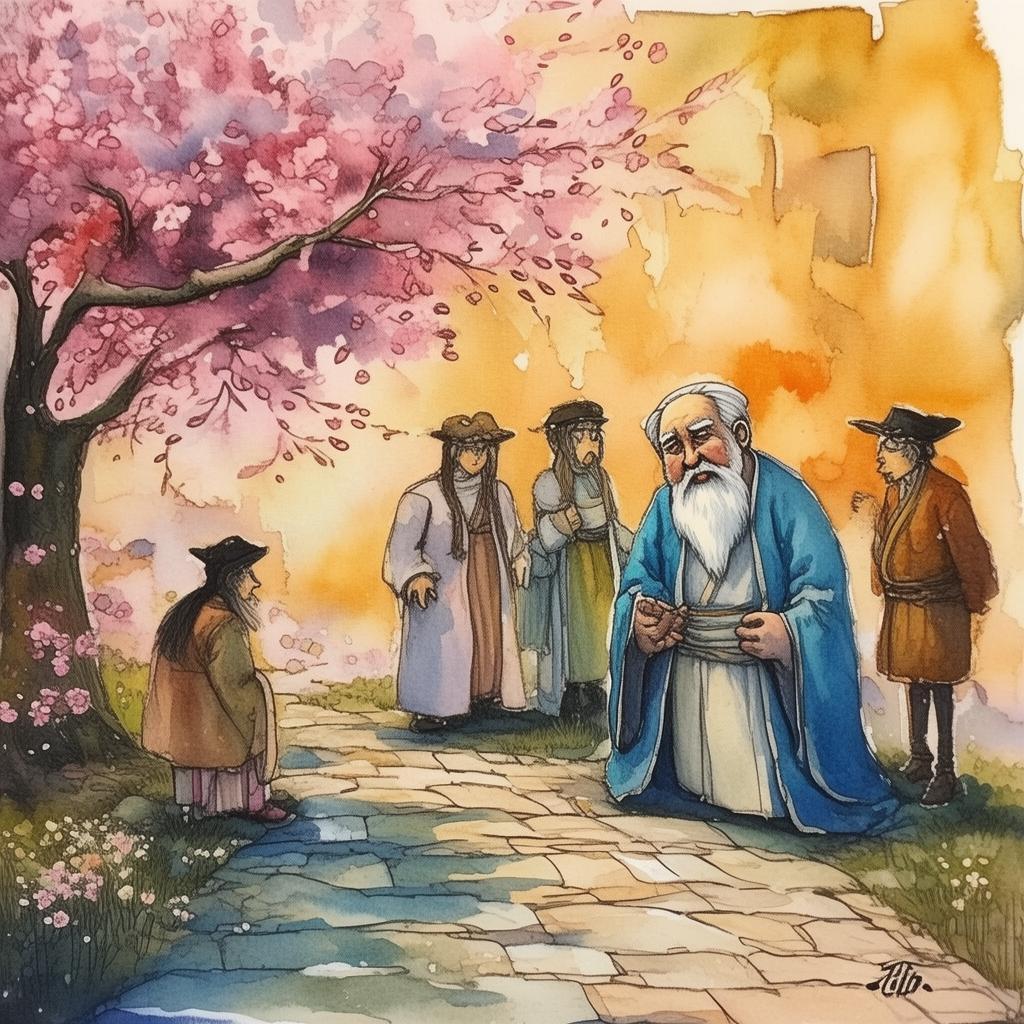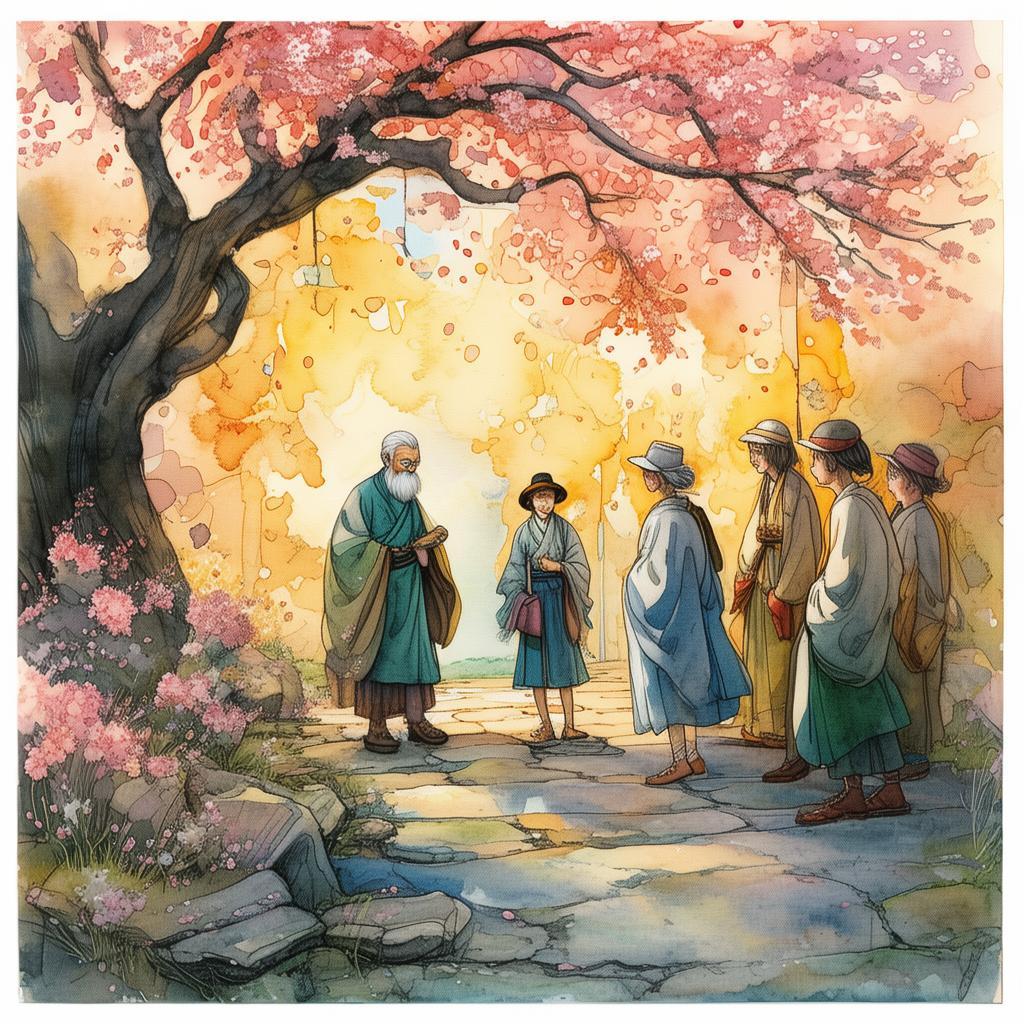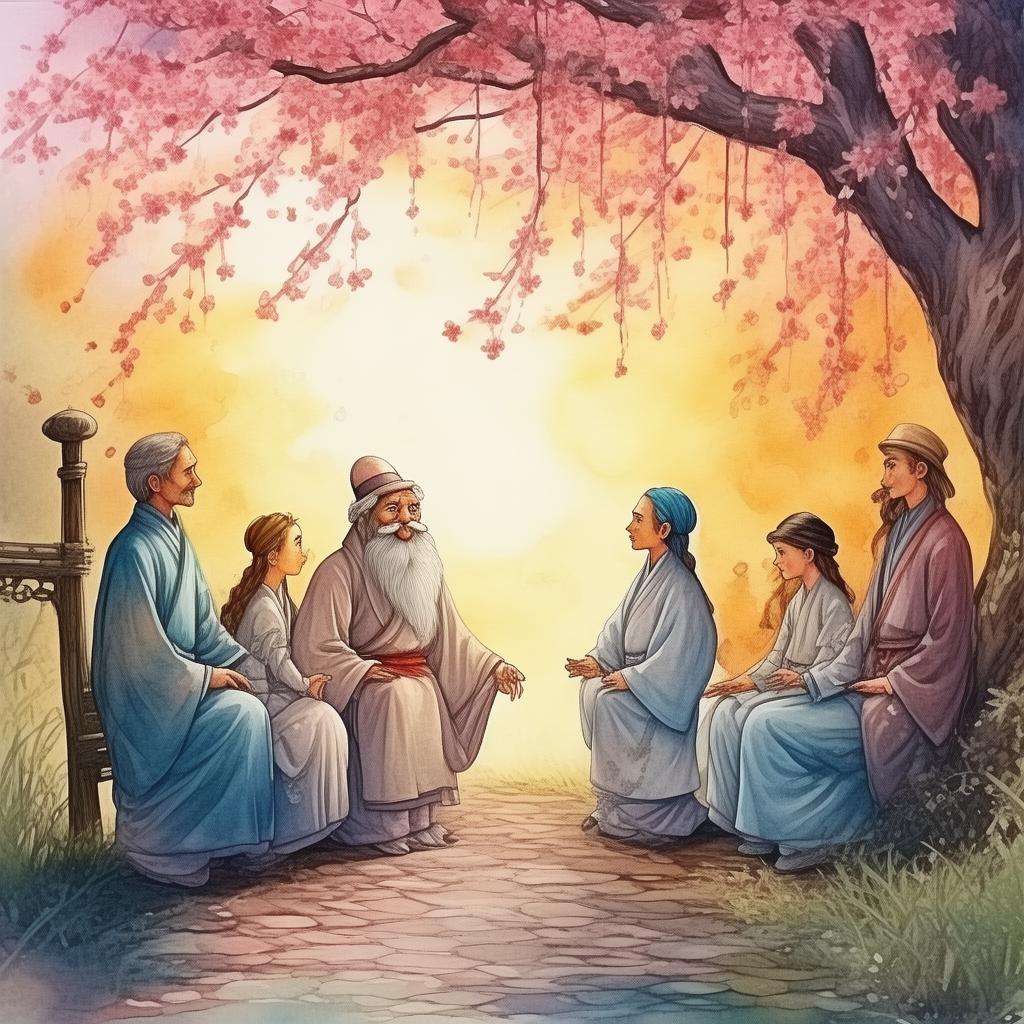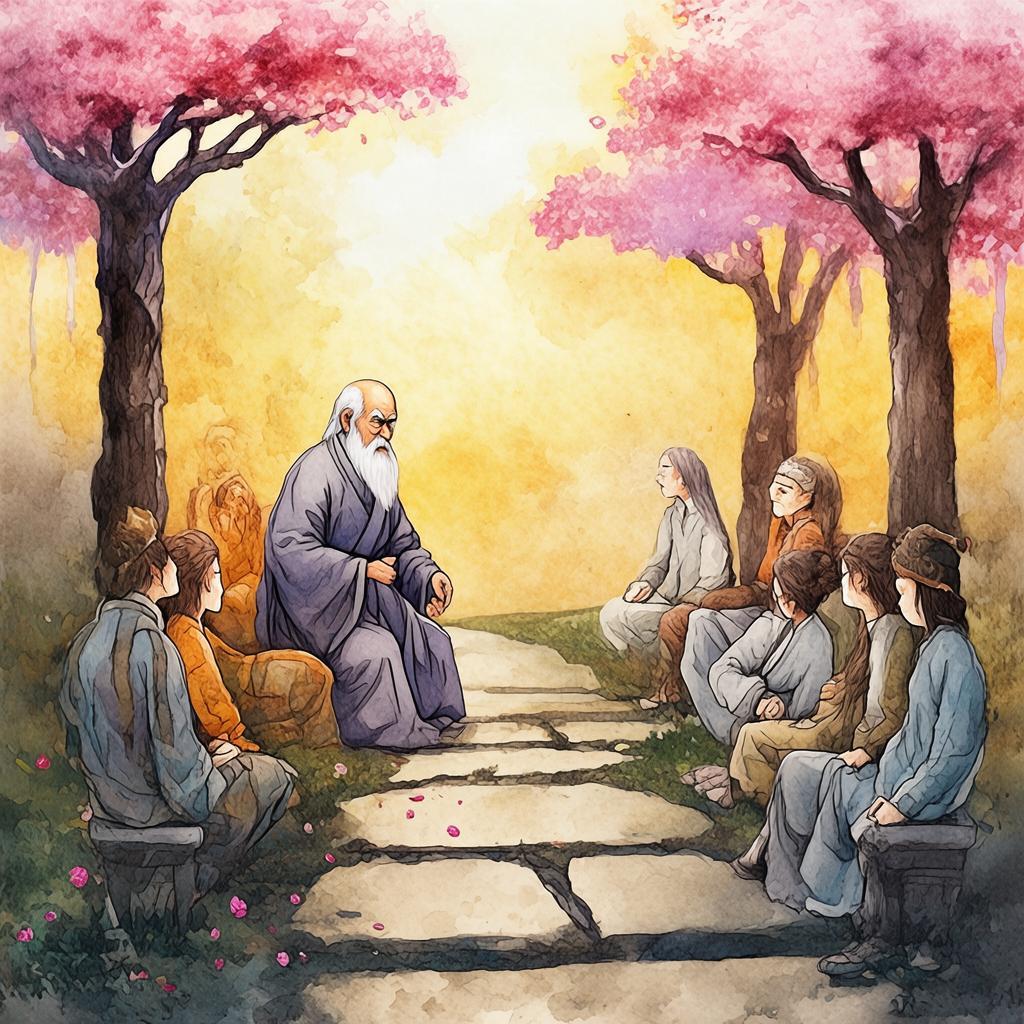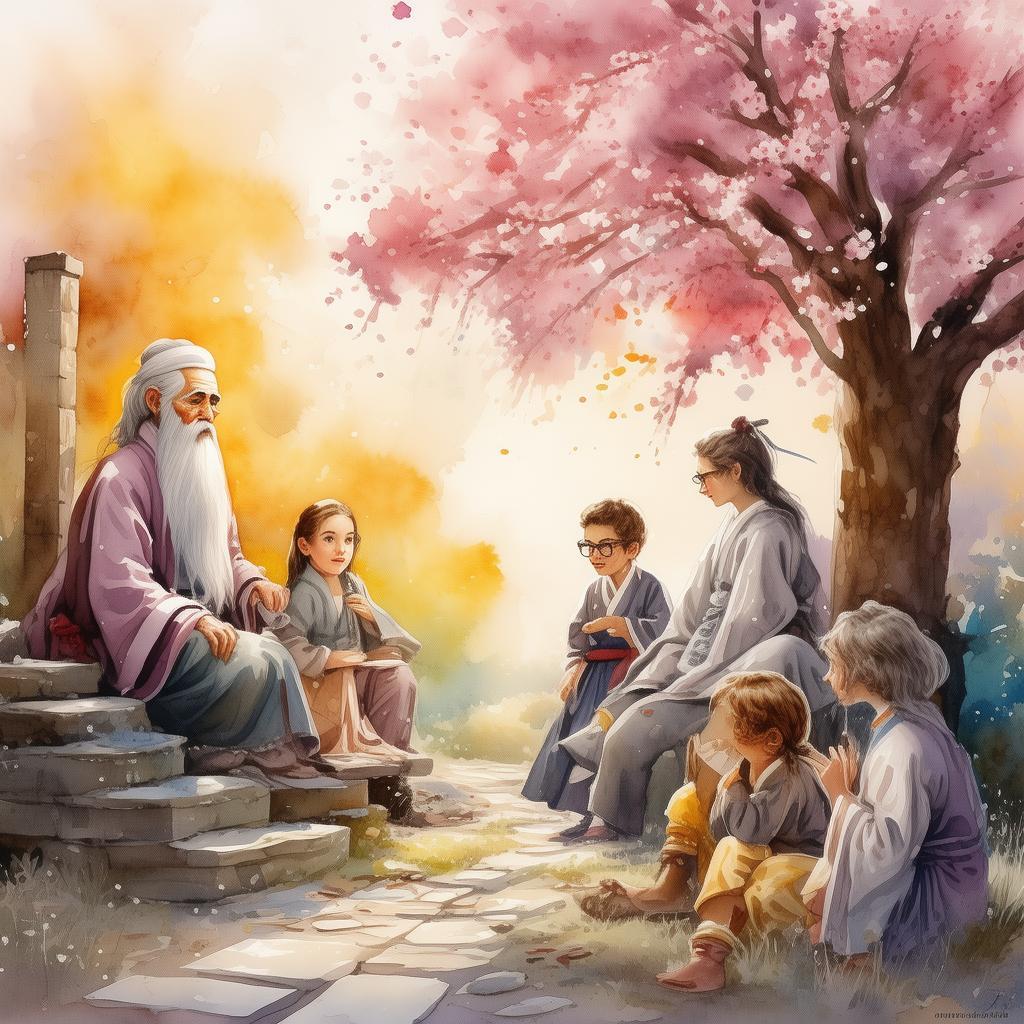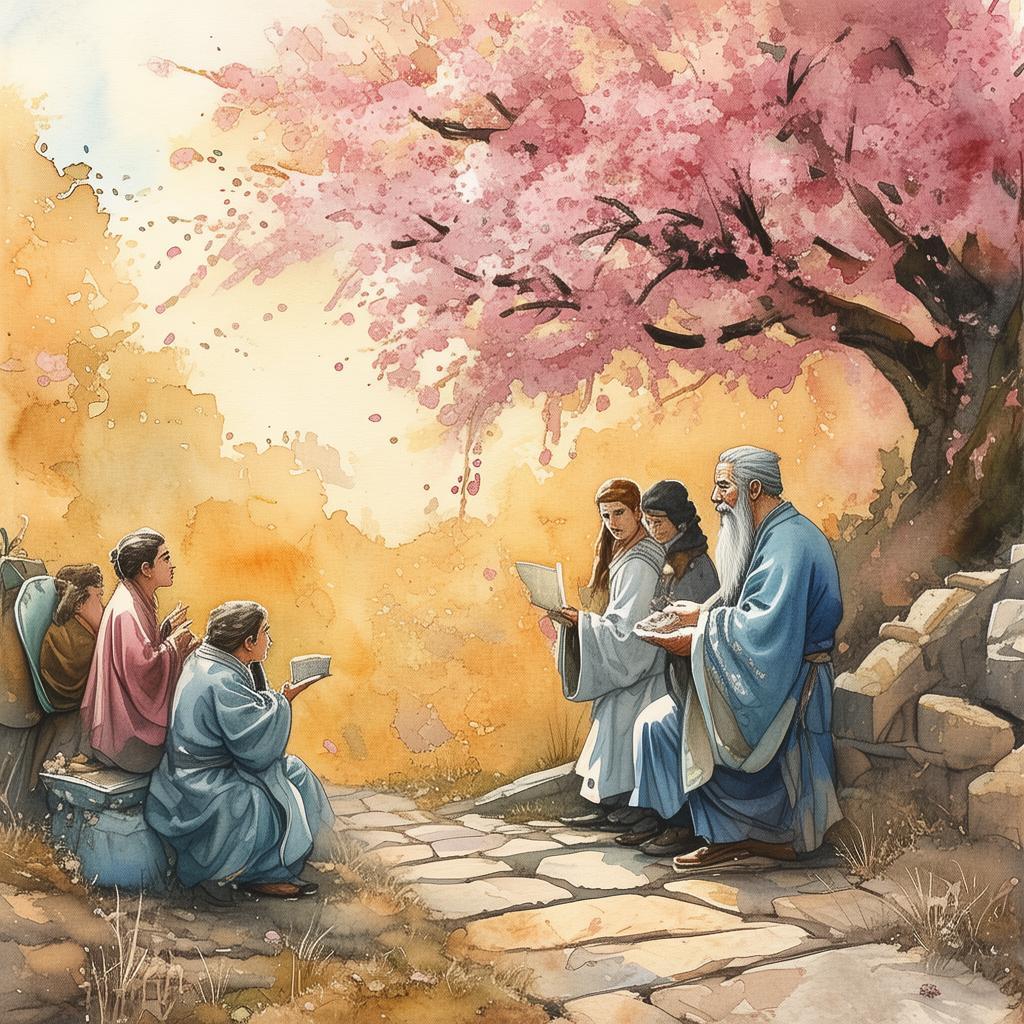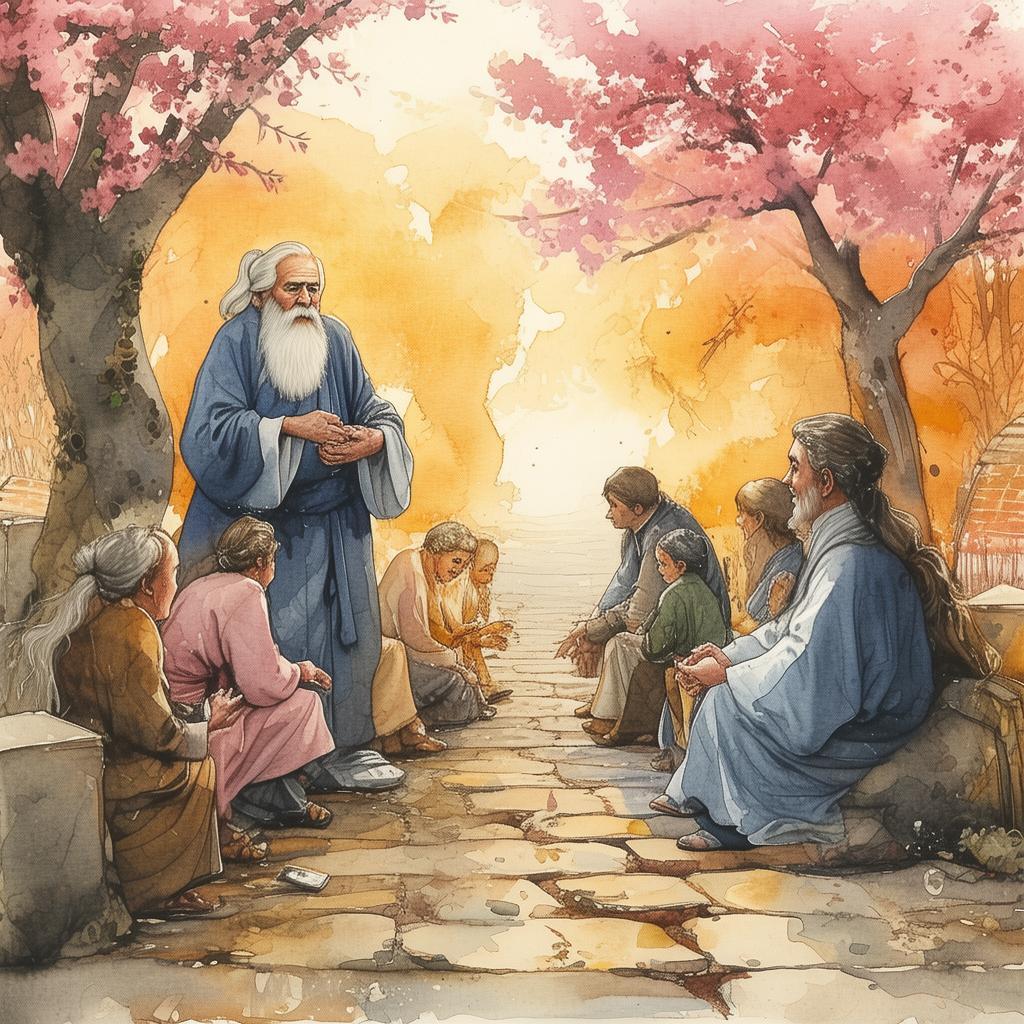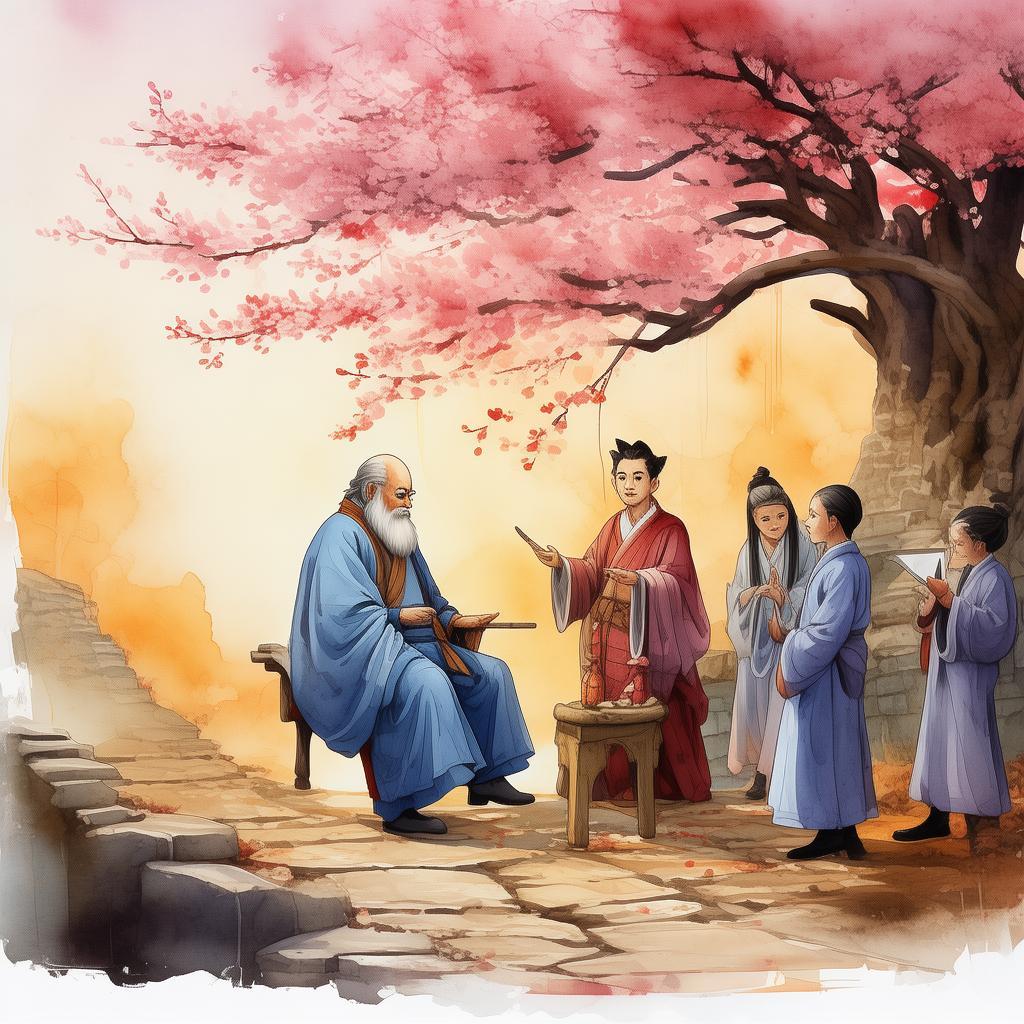The Bard's Lament: A Melody of Betrayal
In the verdant kingdom of Lyricalia, where the air was thick with the scent of blooming flowers and the sound of birdsong filled every corner, there lived a bard named Elara. Her melodies were as enchanting as the tales she spun, and her songs were said to have the power to heal the deepest wounds of the heart. Elara was not just a singer; she was a guardian of the kingdom's history, her songs a tapestry of the land's past and present.
One day, as Elara sat beneath the ancient willow tree that stood at the heart of the kingdom, she began to compose a new song. It was a song of a new dawn, a melody that was to herald the rise of a new era. Little did she know that this song would become the lynchpin of a tale of betrayal and redemption.
The kingdom was at peace, but beneath the surface, a storm brewed. The king, a just and wise ruler, had a secret that he had kept from everyone, including Elara. The kingdom was on the brink of war, threatened by a neighboring realm that sought to conquer Lyricalia for its rich resources and strategic position.
The king's trusted advisor, Lord Viren, was a man of cunning and ambition. He had his eyes on the throne and saw the impending war as his chance to seize power. Lord Viren had a plan, and it involved using Elara's song to manipulate the people's emotions and turn them against the king.
As Elara's melody began to take shape, Lord Viren approached her with a proposition. He offered her a place in the royal court, where her songs would be heard by all. But there was a catch; she must sing a new verse that would inspire the people to rise up against the king.
Elara, naive and trusting, agreed to the proposal. She believed that her music could bring about change and that she could use her gift to bring peace to the kingdom. Little did she know that Lord Viren's intentions were far from noble.
The day of the festival arrived, and Elara stood before the people, her lute in hand. She began to sing, her voice clear and powerful. The crowd was captivated, their hearts swelled with pride and defiance. But as she reached the new verse, her voice faltered, and the melody turned dark and ominous.
The crowd's mood shifted, and whispers of rebellion began to spread. The king, who had been watching from the shadows, realized the gravity of the situation. He confronted Elara, who was in a state of shock and guilt.
"I didn't mean for this," Elara confessed, her voice breaking. "I was naive, and I fell for Lord Viren's lies."
The king, understanding the bard's heart, forgave her but knew that the damage had been done. The kingdom was now on the brink of civil war, and the fate of Lyricalia hung in the balance.
In the midst of the chaos, Elara sought redemption. She traveled to the ancient willow tree, where she had first composed her melody of a new dawn. There, she poured her heart into a new song, one that was to be the anthem of peace and unity.
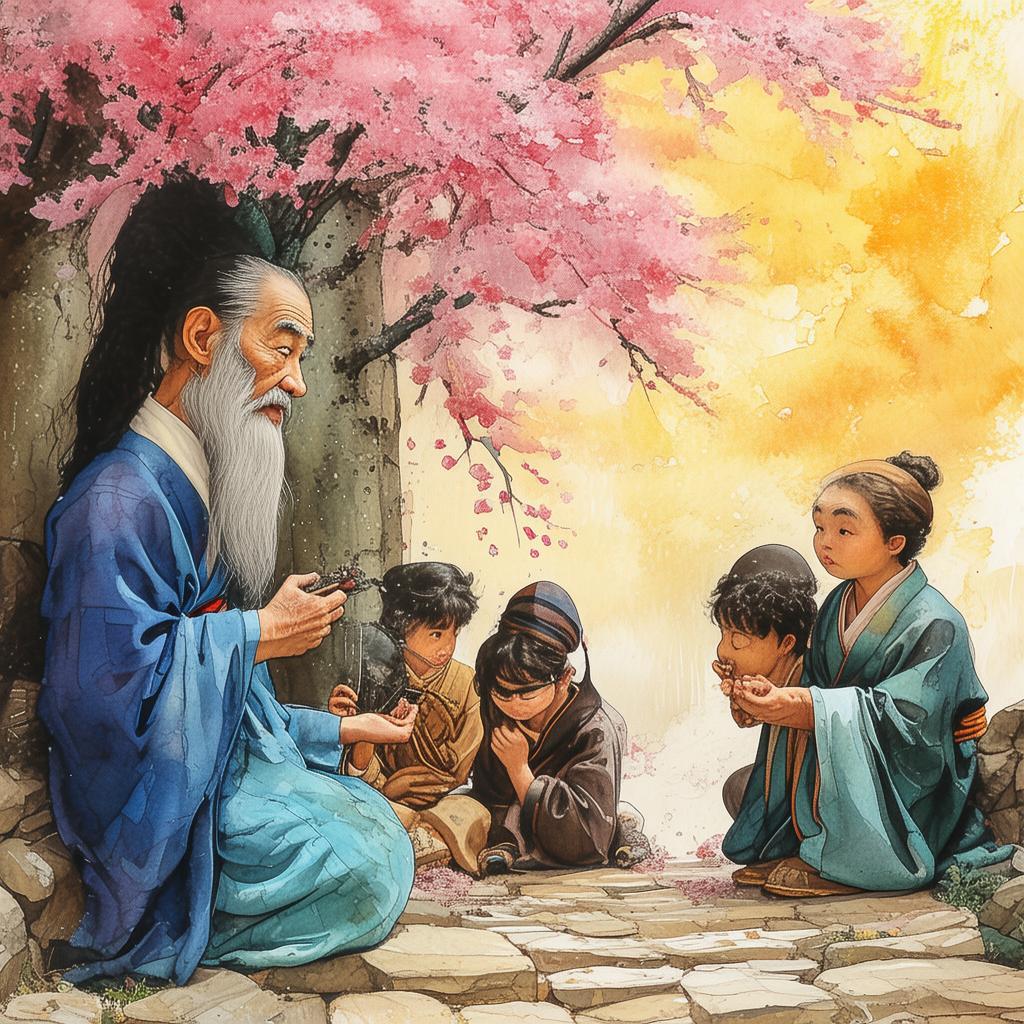
As Elara sang, the people of Lyricalia listened, their hearts heavy with the weight of their kingdom's plight. But as the melody reached its crescendo, something extraordinary happened. The air around them shimmered, and the ancient willow tree began to glow with an ethereal light.
The king, who had been watching from afar, approached Elara. "Your song has healed our land," he said, his voice filled with awe. "It has brought us together, and now we stand as one against our enemies."
The war that had threatened to tear Lyricalia apart never came. Instead, the kingdom flourished, and Elara's song became a legend, a reminder of the power of music and the strength of unity.
Years passed, and Elara's legend grew. She was no longer just a bard; she was a symbol of hope and redemption. And so, the tale of Elara's melody of a new dawn was told and retold, a story that would inspire generations to come.
In the end, Elara's journey taught her that true power lay not in the ability to manipulate others, but in the courage to face one's mistakes and the wisdom to use one's gifts for the greater good. Her story was a testament to the enduring power of music and the resilience of the human spirit.
✨ Original Statement ✨
All articles published on this website (including but not limited to text, images, videos, and other content) are original or authorized for reposting and are protected by relevant laws. Without the explicit written permission of this website, no individual or organization may copy, modify, repost, or use the content for commercial purposes.
If you need to quote or cooperate, please contact this site for authorization. We reserve the right to pursue legal responsibility for any unauthorized use.
Hereby declared.
